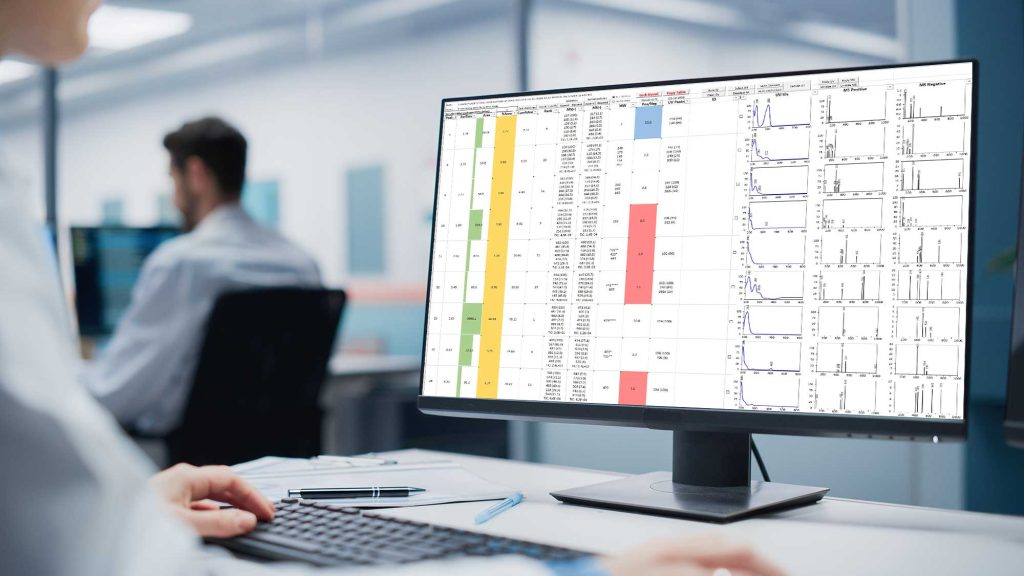 MST’s metabolomics-driven philosophy focuses on identifying talented microbes and understanding how chemical diversity can be driven by microbial diversity. Every microbe has been fermented on multiple media and the co-metabolite profile accessed using DAD-HPLC to classify the UV spectra into classes, filter out the strains with few or no secondary metabolites, and target only talented microbes representing diverse chemical classes and bioassay activity.
MST’s metabolomics-driven philosophy focuses on identifying talented microbes and understanding how chemical diversity can be driven by microbial diversity. Every microbe has been fermented on multiple media and the co-metabolite profile accessed using DAD-HPLC to classify the UV spectra into classes, filter out the strains with few or no secondary metabolites, and target only talented microbes representing diverse chemical classes and bioassay activity.
From our library of 500,000 microbial strains, the filtered collection of 100,000 talented microbes producing >2.5 million metabolites represents the largest collection of microbial metabolites in the world.
MST’s three decades of research success are driven by the fusion of proprietary bioinformatics systems and state-of-the-art instrumentation.
Using UHPLCs, LCMS and HR-LCMS, we have the capacity to analyze and dereplicate over 500 samples daily. The data seamlessly integrates into our proprietary bioinformatics tools.
- DAD-HPLC drives COMET (Co-METabolite) software to provide analysis of microbial strains to
- Identify talented strains,
- Remove poor performers and replicates, and
- Support the OSMAC strategy to maximise chemical diversity.
- NovaC and NovaL analyze LCMS and HRMS traces of up to 100 individual metabolites within a single culture to define
- The production yield, and
- Physico-chemical characteristics – acidity/basicity, UV class, and MW.
The resulting data are compiled into a searchable database. High resolution MW provides a rapid molecular formula and putative structural identification through linkage to published natural product databases.
- Bioprofile software links the microbial strains with biological profiles established from our in-house bioassay protocols to monitor
- Gram +ve and Gram -ve bacteria
- Yeast and filamentous fungi
- Protozoa
- Nematodes
- Insects
- Monocotyledon and dicotyledon plants
- A range of tumor cell lines.
With >10 million datapoints, Bioprofile is the backbone of our biological framework.
We may not have every metabolite reported in the literature but we have the largest range, evidenced by our publication record and commercial bona fides.
MST is the first point of call for companies and researchers looking for something new in natural product drug discovery, agriculture, animal health, biocontrol, food, cosmetic, reclamation or any field where microbes might provide an edge.